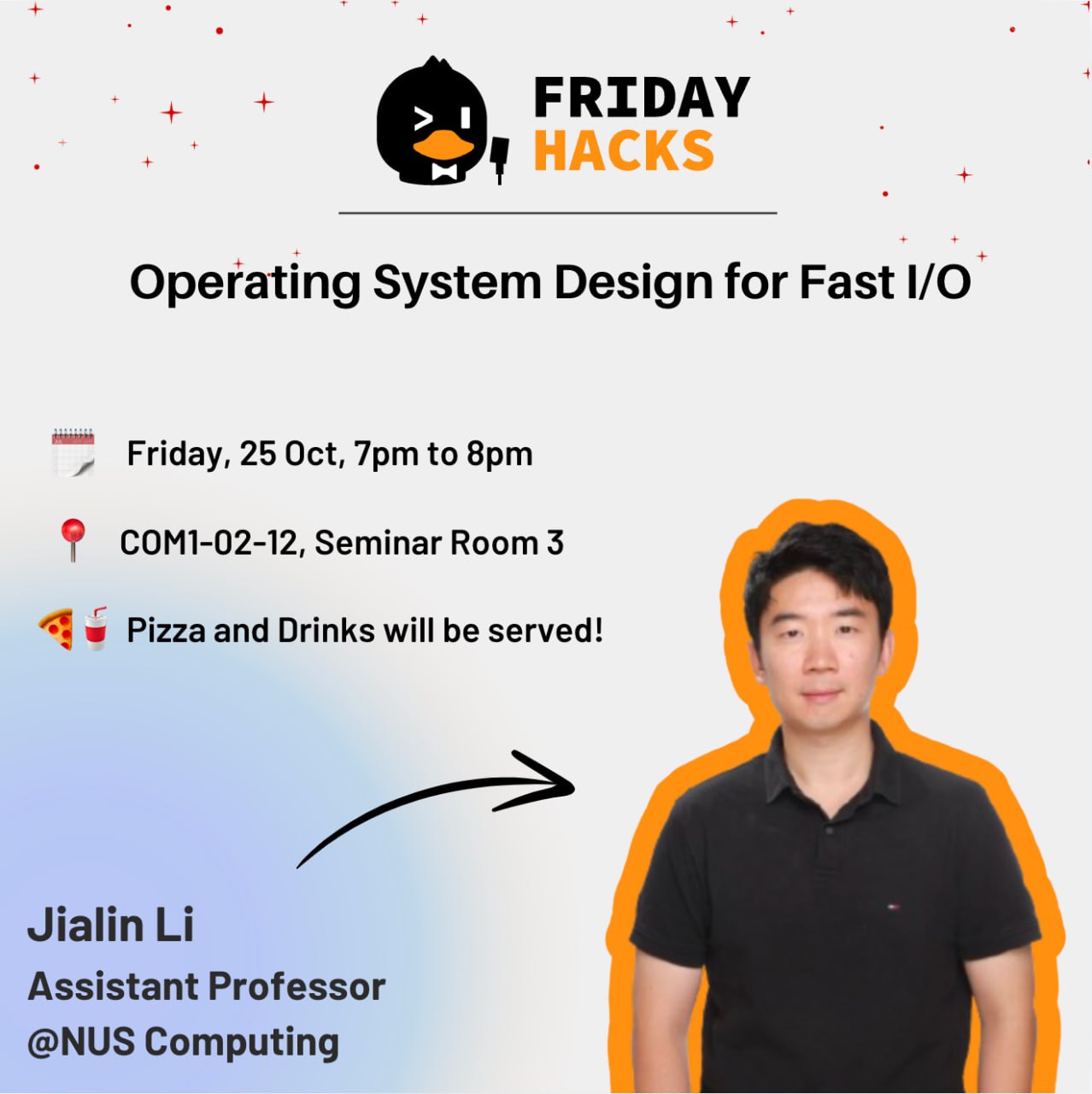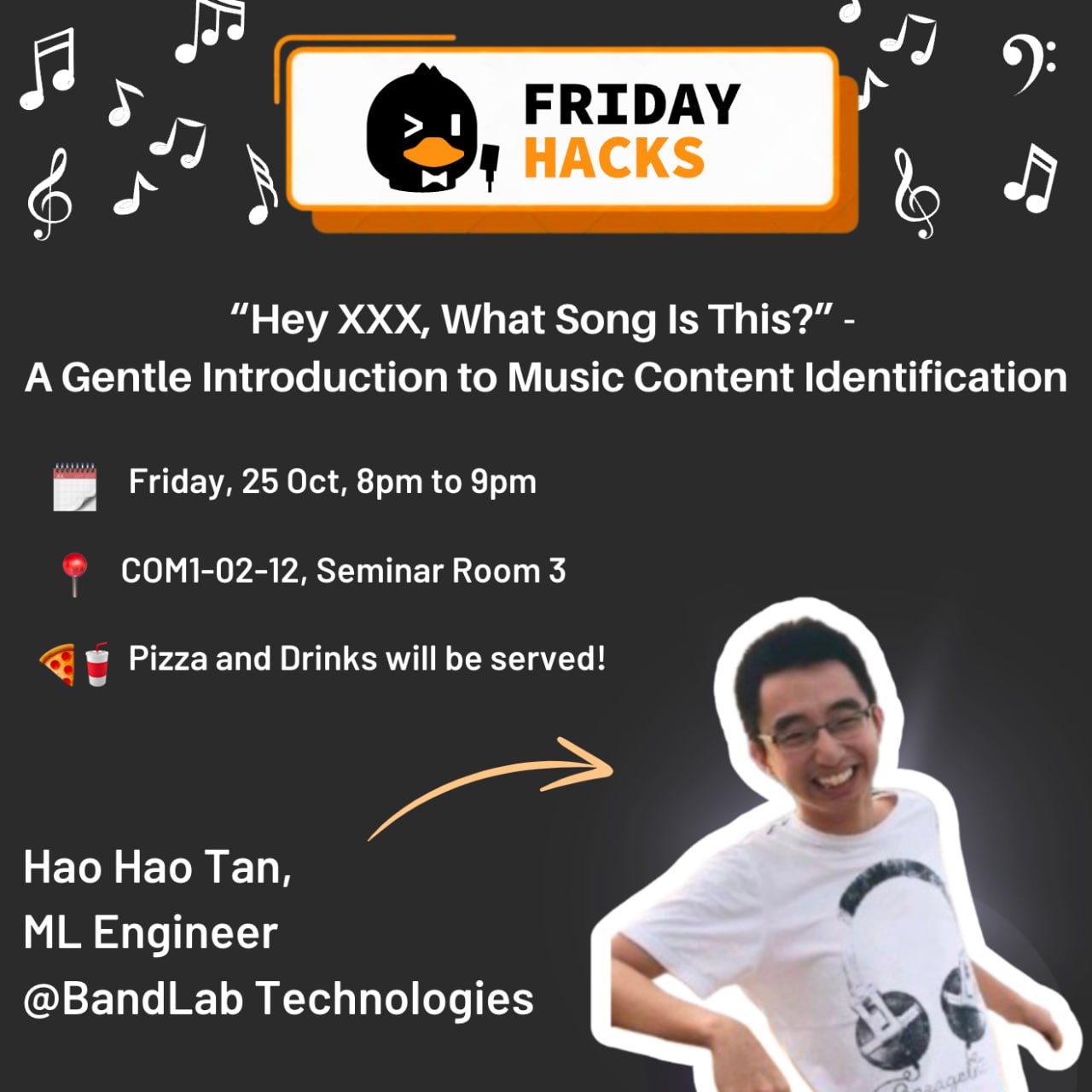Friday Hacks #266, October 25: On OS design for fast I/O and Music Content Identification
Posted on by Chua Jun Yu
Date/Time: Friday, October 25 at 7:00pm SGT
Venue: Seminar Room 3, COM1-02-12, NUS
Sign-up Link: Sign-up here
Food 🍕 and Drinks 🧋 will be served!

1) Operating System Design for Fast I/O
Traditional operating systems consider I/O as slow operations. Over the last decade, I/O technology has improved significantly. Yet, CPU performance scaling has stalled due to physical limitations. So, traditional OS designs have created performance bottlenecks in I/O processing. I will discuss recent attempts to redesign the OS I/O architecture to address this challenge, focusing on the separation of control and data plane in the OS, and hardware offloading techniques to eliminate the bottlenecks.
Speaker Profile 🎙️
Jialin Li is the Sung Kah Kay Assistant Professor in the School of Computing at NUS. Jialin received his PhD from the University of Washington, and bachelor’s degree from the University of Michigan. His research has been awarded the OSDI ‘14 Jay Lepreau Best Paper Award and the NSDI ‘15 Best Paper Award.

2) “Hey XXX, What Song Is This?” - A Gentle Introduction to Music Content Identification
We probably have used apps like Shazam, Google Assistant, or Alexa to ask the question, “Hey, what song is this?” when we hear a new song we like in public. In this talk, we’ll explore how systems work to identify music in seconds. We’ll cover audio fingerprinting, the algorithm that allows machines to quickly recognize songs from short clips, even in noisy environments. We’ll dive into the AI technology that enable these systems to recognize covers remixes. Whether you’re new to the topic or curious about the tech, this session offers a simple, clear look at how music content identification works.
Speaker Profile 🎙️
Hao Hao is a machine learning engineer at BandLab Technologies, applying AI/ML to assist music creation workflow and enhance intelligent musical analysis.
👋 See you there!